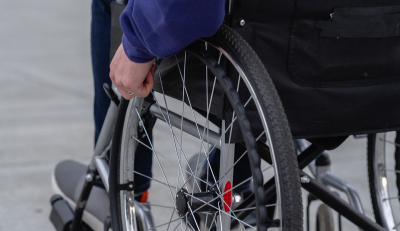Temporary Disability Benefits: What You Should Know!
Temporary disability can catch anyone off guard, especially federal employees who rely on their paycheck to meet everyday expenses. Fortunately, temporary disability insurance is designed to provide financial support when you can’t work due to an illness or injury. In this blog, we’ll explain everything you need to know about temporary disability insurance, how to apply, and what benefits you can expect during your time off.
Keep reading to learn how to protect yourself and your family with the right coverage!
What Is Temporary Disability Insurance?
Temporary disability insurance is a type of coverage that provides financial assistance to workers who are temporarily unable to perform their jobs due to medical reasons. Unlike unemployment benefits, which are for individuals who lose their jobs, this type of insurance kicks in when you are still employed but can’t work due to a qualifying illness or injury.
For federal employees, temporary disability insurance ensures you receive a portion of your income while you recover, giving you peace of mind during challenging times.
How Does Temporary Disability Insurance Work for Federal Employees?
If you’re a federal employee, you’re in a unique position when it comes to disability insurance. Here’s what you need to know:
- Eligibility: You must be certified by a healthcare provider as unable to work due to illness or injury. Proof from your doctor is essential when applying for benefits.
- Benefit Payments: Temporary disability insurance usually covers a portion of your salary, ensuring that you can manage your financial obligations while focusing on recovery. The percentage of salary covered varies but generally ranges from 50-70%.
- Duration: These benefits are designed to be temporary. Depending on your condition and the certification from your doctor, benefits can last anywhere from a few weeks to several months.
- Return to Work: Once you’re cleared by your doctor, the payments stop, and you return to your regular duties. If your condition lasts longer than expected, you might want to explore long-term disability options.
Understanding Term Disability Insurance
Term disability insurance is another form of protection you should consider. While temporary disability insurance covers you for shorter periods, term disability insurance offers extended coverage for more severe or long-lasting conditions.
Federal employees should be aware that long-term options exist and might be necessary in cases where recovery is uncertain or prolonged.
How to Apply for Temporary Disability Insurance
The process to apply for temporary disability insurance is straightforward but requires careful attention. Here are the basic steps:
- Notify Your Employer: Federal employees should inform their employer as soon as they know they won’t be able to work. This is critical to starting the insurance process.
- Consult Your Healthcare Provider: Your doctor needs to certify your condition, confirming that you’re unable to work for a certain period. This medical documentation is essential for your claim.
- File Your Claim: Submit your paperwork to your benefits office or HR department. Be sure to include all necessary medical documentation. If your claim status is delayed or denied, follow up immediately for updates and corrections.
- Monitor Your Claim Status: After filing, stay in touch with your employer or benefits coordinator to track the status of your claim. Knowing where you are in the process will help avoid any unnecessary delays.
Helpful Tip:
If you’re combining family leave with your temporary disability insurance, make sure to discuss this with your HR department. Coordinating these benefits can maximize your time off without sacrificing income.
Common Questions About Temporary Disability and Unemployment Benefits
Federal employees often have questions about disability during unemployment or whether they can collect temporary disability insurance and unemployment benefits at the same time.
Typically, you cannot collect both unemployment benefits and temporary disability benefits simultaneously. Temporary disability insurance is for people still employed but unable to work, while unemployment benefits are for those who lose their jobs. Always consult with your HR office or benefits coordinator to ensure you understand what benefits apply to your situation.
Be Aware of Scams
Unfortunately, some claimants have reported scams when filing for disability benefits. Make sure to file only through official channels, such as your agency’s HR department or The Benefit Coordinators. Never share sensitive information with third-party websites or individuals who aren’t directly associated with your benefits office. For any concerns, check with trusted resources or contact your state or federal benefits coordinator.
State-Specific Temporary Disability Insurance Programs
Some states, like New Jersey, offer temporary disability insurance programs specifically for state residents. If you’re a federal employee living in a state with its own program, make sure you understand how these state benefits interact with your federal coverage. Each state has its own rules, and benefits can vary widely.
If you have questions about your state’s program or federal coverage, visit The Benefit Coordinators for more detailed information.
Protect Yourself with Temporary Disability Insurance
Temporary disability insurance is an essential safety net for federal employees. It ensures you don’t have to worry about finances while recovering from an illness or injury. Whether you’re planning for future needs or navigating a current medical issue, understanding your benefits is key to protecting yourself and your family.
If you’re not sure about the right type of insurance for you, including options like term disability insurance or social security disability insurance, reach out to The Benefit Coordinators. Their team can help you figure out the best plan for your situation and provide the contact information you need for further assistance.
Don’t wait—get the coverage you need now, so you’re ready for any unexpected health challenges.







